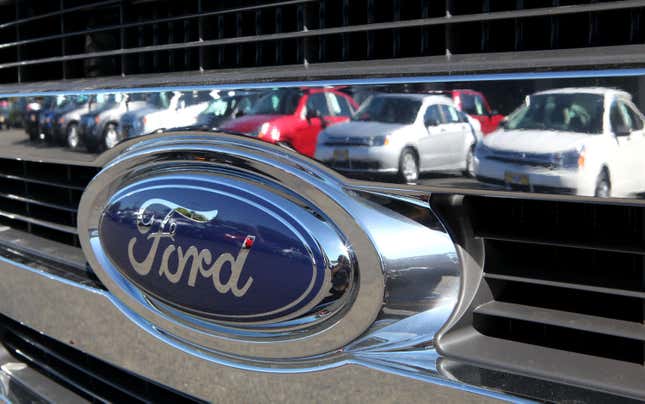
Two automakers on Tuesday issued “Do Not Drive” warnings for hundreds of thousands of vehicles equipped with recalled and unprepared Takata airbags.
Ford Motor on Tuesday said there are roughly 765,600 airbag inflators in Ford and Lincoln vehicles around the world, including 374,300 in the U.S. Ninety-five percent of U.S. customers have answered the automaker’s more than 121 million outreach attempts.
Ford has issued recalls for several models that have used the airbags, including the 2004-2006 model year Ford Ranger pickup trucks and 2007-2010 model year Lincoln MKX SUVs. The “Do Not Drive” advisory issued Tuesday is the automaker’s second issued in six years and “is intended to encourage owners to complete the recall repairs immediately.”
Mazda’s warning covers 82,893 vehicles made between 2003 and 2015 that have been previously recalled, according to the National Highway Transportation Safety Administration (NHTSA). That includes the 2007-2015 model year CX-9 SUV and 2006-2007 model year MazdaSpeed6 mid-size car.
The airbags had a flaw in which metal pieces inside the inflators would explode outward when the safety feature was deployed. Some of the vehicles with the parts are now more than 20 years old, which regulators say increases the risk of the airbags rupturing in a crash. A resulting explosion could kill or severely injure a vehicle’s driver or passengers.
At least 27 people in the U.S. have been killed, and 400 injured, by defective Takata airbags, according to NHTSA. Up to 51 million defective airbags have been installed in cars across the U.S., the NHTSA said.
Last month, BMW said it would recall 390,000 vehicles in the U.S, including older BMW 3 Series sedans, because of faulty airbag inflators. Over the past decade, more than 100 million vehicles equipped with the defective airbags have been recalled around the world.
Nissan in May issued a “Do Not Drive” warning to owners of some 84,000 vehicles after one person in a Nissan was killed by an exploding front-passenger inflator. Honda Motor, Toyota Motor, and Stellantis have all issued similar warnings in recent years.